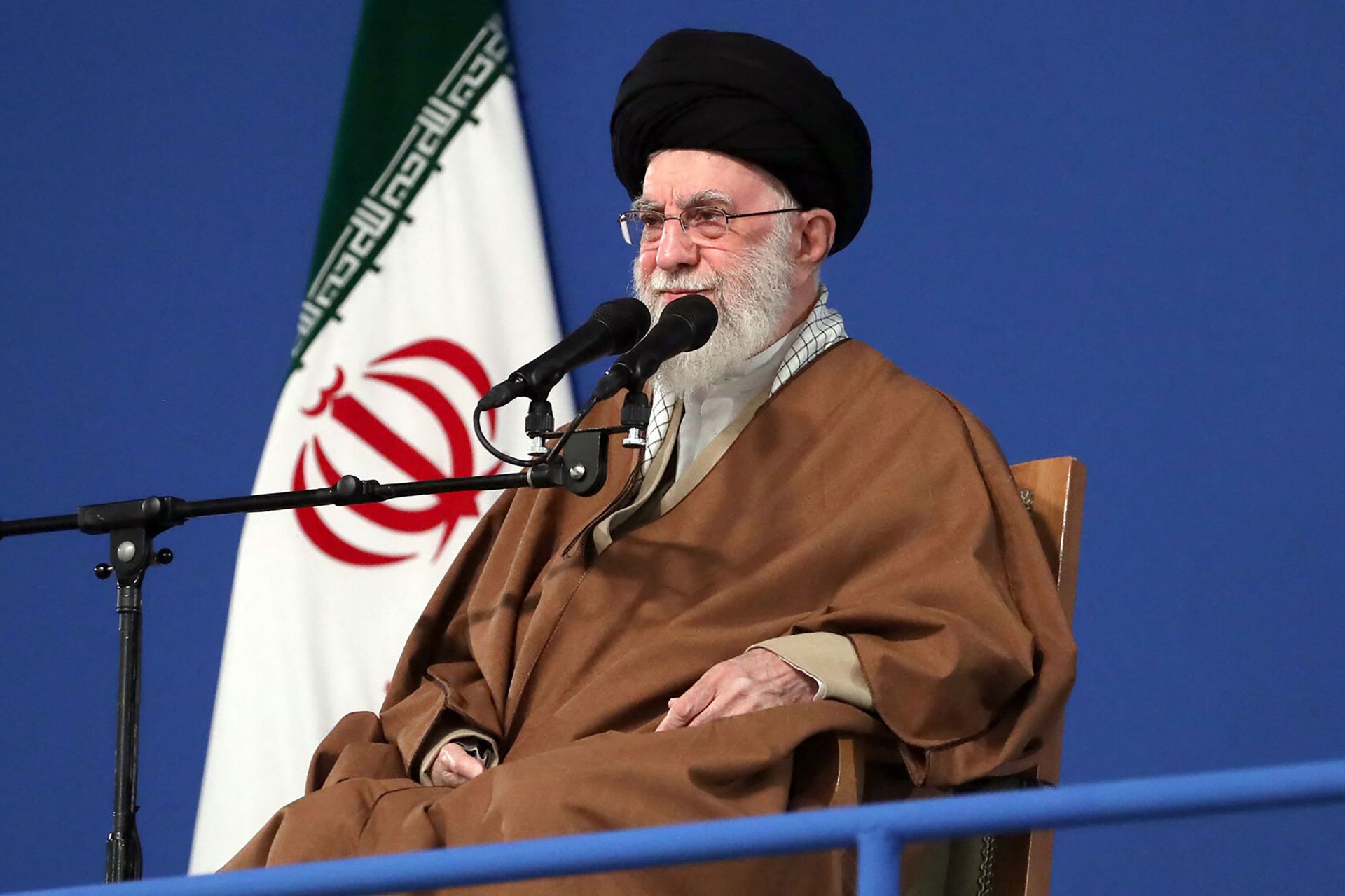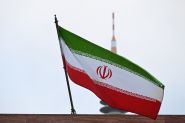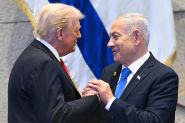- Home
- Middle East
- Iran Says Wants Dialogue 'on Equal Footing' with US

A handout picture provided by the Iranian supreme leader Ayatollah Ali Khamenei’s office on March 21, 2025, shows him addressing the crowd during his annual Nowruz speech, in Tehran. Iran's supreme leader said on March 21, that US threats against his country "will get them nowhere", after US President Donald Trump warned of possible military action against the Islamic republic. ©KHAMENEI.IR / AFP
Iranian President Masoud Pezeshkian on Saturday said his country was willing to engage in dialogue with the United States as equals, without clarifying whether Tehran would participate in direct talks.
It came after US President Donald Trump, who has called on Tehran to hold direct negotiations on its nuclear program, threatened to bomb Iran if diplomacy fails.
Iran says it is ready to engage in dialogue but refuses direct talks under threats and pressure.
"The Islamic Republic of Iran wants dialogue on equal footing," Pezeshkian said during a meeting, according to the presidency's website.
On Thursday, Trump said he would prefer to hold "direct talks" with Iran.
"I think it goes faster and you understand the other side a lot better than if you go through intermediaries," the US president argued.
But on Saturday, Pezeshkian asked: "If you want negotiations, then what is the point of threatening?"
"Today, America is not only humiliating Iran, but also the world," Pezeshkian added, in an apparent reference to recent policies adopted by Trump, including imposing tariffs on imported goods.
Western countries, led by the United States, have for decades accused Tehran of seeking nuclear weapons. Iran rejects these allegations and maintains that its nuclear activities exist solely for civilian purposes.
In 2015, the country reached a landmark deal with the permanent members of the UN Security Council, namely the United States, France, China, Russia, and the United Kingdom, as well as Germany, to regulate its nuclear activities.
The agreement provided for sanctions relief in exchange for curbs on Iranian nuclear activities.
In 2018, during Trump's first term in office, the US withdrew from the agreement and reinstated sanctions. In response, Iran rolled back on its commitments under the agreement and accelerated its nuclear program.
On Monday, Ali Larijani, a close advisor to supreme leader Ayatollah Ali Khamenei, warned that while Iran was not seeking nuclear weapons, it would "have no choice but to do so" in the event of an attack against the country.
AFP
Read more



Comments